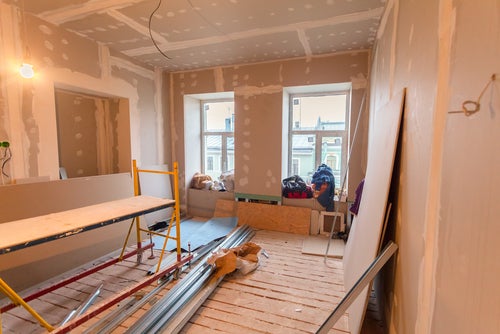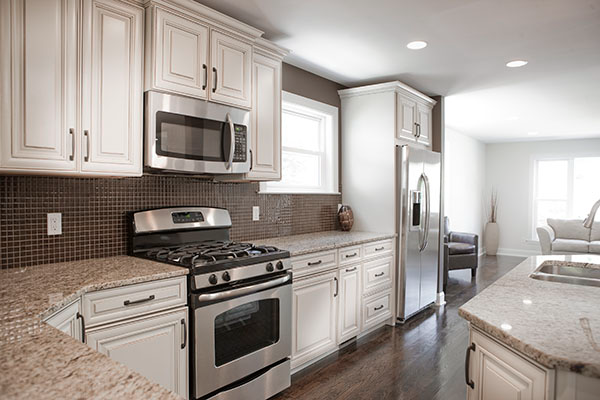Entering the real estate market by buying a house can be a great way to grow your net worth and invest in your future. With the rapid rise of rent costs showing no signs of slowing down, it may be a good idea to purchase a home before the interest rates get even higher.
American Home Shield® can help you navigate the real estate market with helpful first-time homebuyer tips and suggestions on how to avoid buyer’s remorse on a house.
1. Don’t skip the house inspection.
In a seller’s market, often home inspections are avoided to beat other offers and speed up the home sale process. However, foregoing an inspection can pave the way for buyer’s regret house woes. In fact, many homeowners who took this step during the pandemic and purchased houses sight unseen are now regretting it.
Sometimes getting a home inspection just isn’t doable—we get it. If this is your situation, or if you live in an area notorious for bidding wars, make sure you have enough money on hand to fix any issues that may be uncovered once you move in.
2. Always view the house in person.

Ten years ago, this concept would seem like a no-brainer: Who is going to invest hundreds of thousands of dollars into something they haven’t seen with their own two eyes? Nowadays, modern technology like video chatting and Zoom may make it feel less risky.
While virtual tours are convenient, especially if you’re buying a house out of state, viewing the home through your phone screen really doesn’t cut it. When exploring the house, you’ll want to be able to view the nooks and crannies, use your nose to smell any odors, and try to glimpse things like mildew and dampness.
Plus, you’ll want to experience the feel of the home. Often, you’ll know whether a house is a potential home as soon as you walk in. The last thing you want is to close on a house and have the buyer’s remorse hit you as soon as you cross the threshold.
3. Don’t look at houses that are at the top of your budget.
Perusing real estate apps is a great pastime, even if you’re not in the market for a new home. It’s fun to look at photos of seaside mansions and mountain escapes, dreaming of living in one after hitting the lottery. Once you start looking seriously, you should set filters to avoid seeing something you can’t afford. This may save some heartbreak and help you avoid house buyer’s remorse.
In some real estate markets, houses sell at thousands—even hundreds of thousands—of dollars over the asking price. Looking at houses at the top or over your budget will only accomplish one of two things:
- You’ll either buy a house you’ll grow to resent because it eats all of your paycheck, or
- All the houses in your price range will look small and unattractive in comparison.
You’re much better off setting the filters on the real estate apps at a lower price than your budget and telling your real estate agent that you don’t want to go over a certain amount. It will help ensure you don’t regret buying a house you can’t afford.
Read our suggestions for first-time homeowners managing bills, and learn more about first-time homebuyer tax benefits.
4. Write down your dealbreakers.

When house hunting, it’s easy to become overwhelmed. After seeing house after house, you may become impatient and decide to settle on a few things. This is rather common—unless you’re extremely lucky, the perfect home is rare, and you’ll likely have to let go of a few items on your house checklist.
However, if you let too many must-haves go, you may experience buyer’s remorse house anxiety. To avoid this, make a written list of the dealbreakers. Here are some things to consider:
- Budget
- Work commute
- School district
- Number of bedrooms
- The size of the backyard
- Basements, garages, and attics
- Architectural style
- Feasibility of future remodels
Prioritize the items on your list so that when you are viewing a home, you can reference the list and remember which items are most important.








